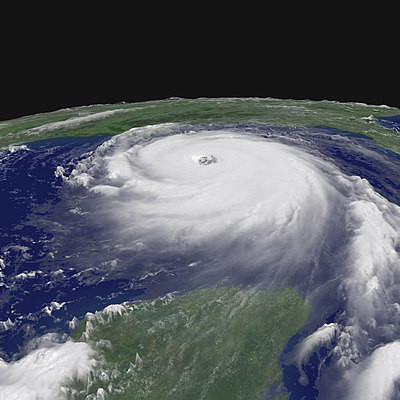AI links heat-wave events to global warming
Aug. 21, 2024.
3 mins. read.
Interactions
Enabling accurate, low-cost analyses of extreme events in more parts of the world—crucial for developing effective climate- adaptation strategies
Researchers at Stanford University and Colorado State University have developed a rapid, low-cost machine-learning approach for studying how individual extreme weather events have been affected by global warming.
They found that if global temperatures reach 2.0 C above pre-industrial-level events (equivalent to some of the worst heat waves in Europe, Russia, and India over the past 45 years) it could happen multiple times per decade. According to Copernicus Climate Change Service, global warming is currently approaching 1.3 C above pre-industrial levels.
Their method, detailed in an August 21 study in the journal Science Advances, uses machine learning to determine how much global warming has contributed to heat waves in the U.S. and elsewhere in recent years.
The approach proved highly accurate and could change how scientists study and predict the impact of climate change on a range of extreme weather events, according to the researchers. The results can also help to guide climate adaptation strategies and are relevant for lawsuits that seek to collect compensation for damages caused by climate change.
Training AI models to predict daily maximum temperatures
“We’ve seen the impacts that extreme weather events can have on human health, infrastructure, and ecosystems,” said study lead author Jared Trok, a PhD student in Earth system science at the Stanford Doerr School of Sustainability, in a statement. “To design effective solutions, we need to better understand the extent to which global warming drives changes in these extreme events.”
Trok and his co-authors trained AI models to predict daily maximum temperatures, based on the regional weather conditions and the global mean temperature, using data from a large database of climate model simulations extending from 1850 to 2100.
The researchers then used the actual weather conditions from specific real-world heat waves to predict how hot the heat waves would have been if the same weather conditions occurred, but at different levels of global warming. They then compared these predictions at different global warming levels to estimate how climate change influenced the frequency and severity of historical weather events.
Case studies and beyond
The researchers first put their AI method to work analyzing the 2023 Texas heat wave, which contributed to a record number of heat-related deaths in the state that year. The team found that global warming made the historic heat wave 1.18 to 1.42 degrees Celsius (2.12 to 2.56 F) hotter than it would have been without climate change. The researchers also found that their new technique was able to accurately predict the magnitude of record-setting heat waves in other parts of the world. The results were consistent with previously published studies of those events.
Based on these findings, the researchers used AI to predict how severe heat waves could become if the same weather patterns that caused previous record-breaking heat waves instead occurred under higher levels of global warming. They found that events equal to some of the worst heat waves in Europe, Russia, and India over the past 45 years could happen multiple times per decade if global temperatures reach 2.0 C above pre-industrial levels.
Accurate, low-cost analyses of extreme events in more parts of the world
The new AI method addresses some limitations of existing approaches, including those previously developed at Stanford, by using actual historical weather data when predicting the effect of global warming on extreme events. It does not require expensive new climate model simulations because the AI can be trained using existing simulations.
Together, these innovations will enable accurate, low-cost analyses of extreme events in more parts of the world, which is crucial for developing effective climate adaptation strategies. And it opens up new possibilities for fast, real-time analysis of the contribution of global warming to extreme weather, according to the researchers. The study was funded by Stanford University and the U.S. Department of Energy.
Citation: Trok, J. T., Barnes, E. A., Davenport, F. V., & Diffenbaugh, N. S. (2024). Machine learning–based extreme event attribution. Science Advances. https://www.science.org/doi/10.1126/sciadv.adl3242 (open access)
Let us know your thoughts! Sign up for a Mindplex account now, join our Telegram, or follow us on Twitter.


.png)

.png)


.png)




0 Comments
0 thoughts on “AI links heat-wave events to global warming”